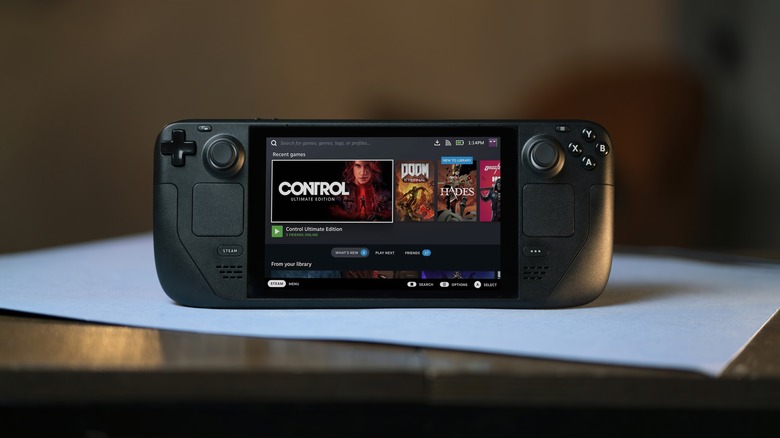Lenovo Reportedly Making A Windows-Based Steam Deck Rival
During the recently-concluded court hearing against the Federal Trade Commission (FTC), Microsoft graciously placed itself behind rivals Sony and Nintendo in the so-called "console wars." But while wholeheartedly conceding defeat, it was careful not to boast about the significant dominating number of PC gamers compared to those who play games on consoles. Those figures can be expected to inflate further in favor of PC, with a hot new category emerging in the form of handheld gaming PCs. Following the popularity of the Steam Deck and ASUS ROG Ally, Lenovo is entering the fray with a handheld gaming console of its own.
Based on a Windows Central report, Lenovo is working on a handheld gaming device that may be marketed under the name of "Legion Go." The handheld will compete with others in the nascent category on the back of a Ryzen 7040HS "Phoenix" series. The Phoneix series is based on AMD's latest Zen-4 architecture and is designed for thin and light PCs, such as the Razer Blade 14 2023. AMD offers Phoenix APUs across Ryzen 5, Ryzen 7, and Ryzen 9 families, but it is unclear which one Lenovo will adopt for its handheld PC.
Based on the processor at play, Legion Go is expected to run on Windows 11 instead of Android. It may also deploy a Linux-based interface like the Steam Deck but support for Windows games unquestionably improves Lenovo's chances of selling more units.
Previous handheld gaming devices
Lenovo is no stranger to handheld gaming devices, launching the Legion Pro gaming phone in 2020. In 2021, Lenovo launched another hardcore gaming phone called the Legion Phone Duel 2. The gaming phones were equipped with inbuilt fans and capacitive trigger buttons for advantage while playing Android games.
The same year, Lenovo was also suggested to be testing another Android-based handheld gaming device called Legion Play with dedicated physical gamepad buttons. The device never saw the light of day but was ruthlessly leaked. Subsequently, Legion Play's prototypes even emerged on the market through unofficial channels.
While the Legion Play was shelved before its release — presumably due to the sharp decline in cloud gaming, the upcoming gaming PC is less likely to have to face the same fate, especially because of its more powerful hardware. It is, however, a bit surprising to see Lenovo not opt for the AMD Z1 chip, which is dedicatedly designed for handheld gaming devices and allows for much lower power consumption.
No launch in sight (yet)
As per the report, the handheld PC will likely come with an 8-inch display — larger than the 7-inch screens on the Steam Deck and the ROG Ally. Until the rumored handheld mode makes its way to Windows, a slightly bigger display will be advantageous.
As the basis of its redemption, the scrapped Legion Play console may form the basis of the upcoming Legion Go's design. Based on leaks, the Legion Play featured a simple design with round hand grips similar to the Nintendo Switch Lite. The gamepad had two analog joysticks for either hand, one direction pad, buttons with X, Y, A, and B letters, and a few other function buttons.
That is, however, purely a speculation with no concrete evidence to back it. Besides the information about its existence and use of an AMD APU, the report shares no further details about Lenovo's project. Therefore, potential information about its release — or the probability of whether it will happen this time — is also unavailable until further update.
